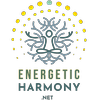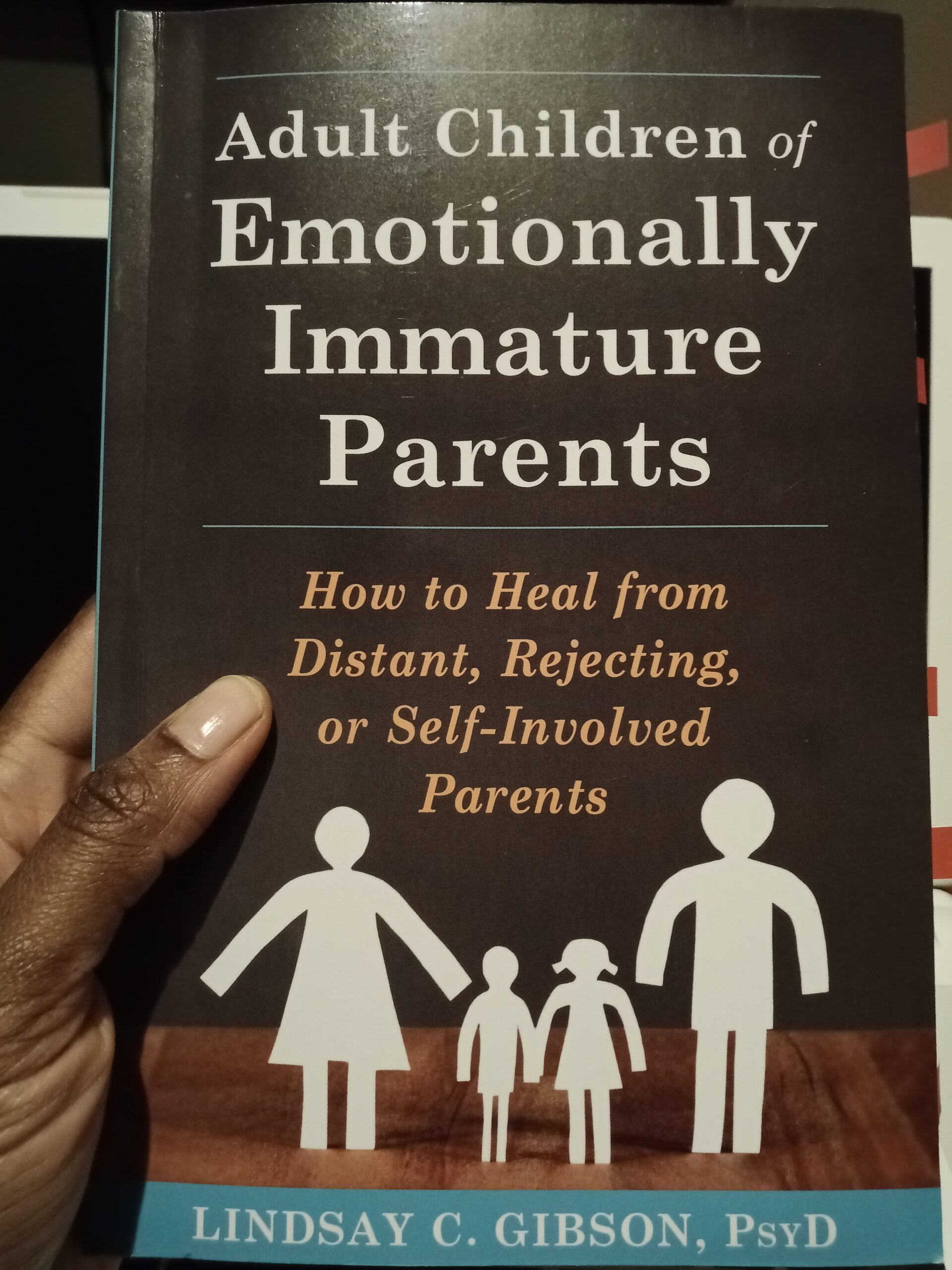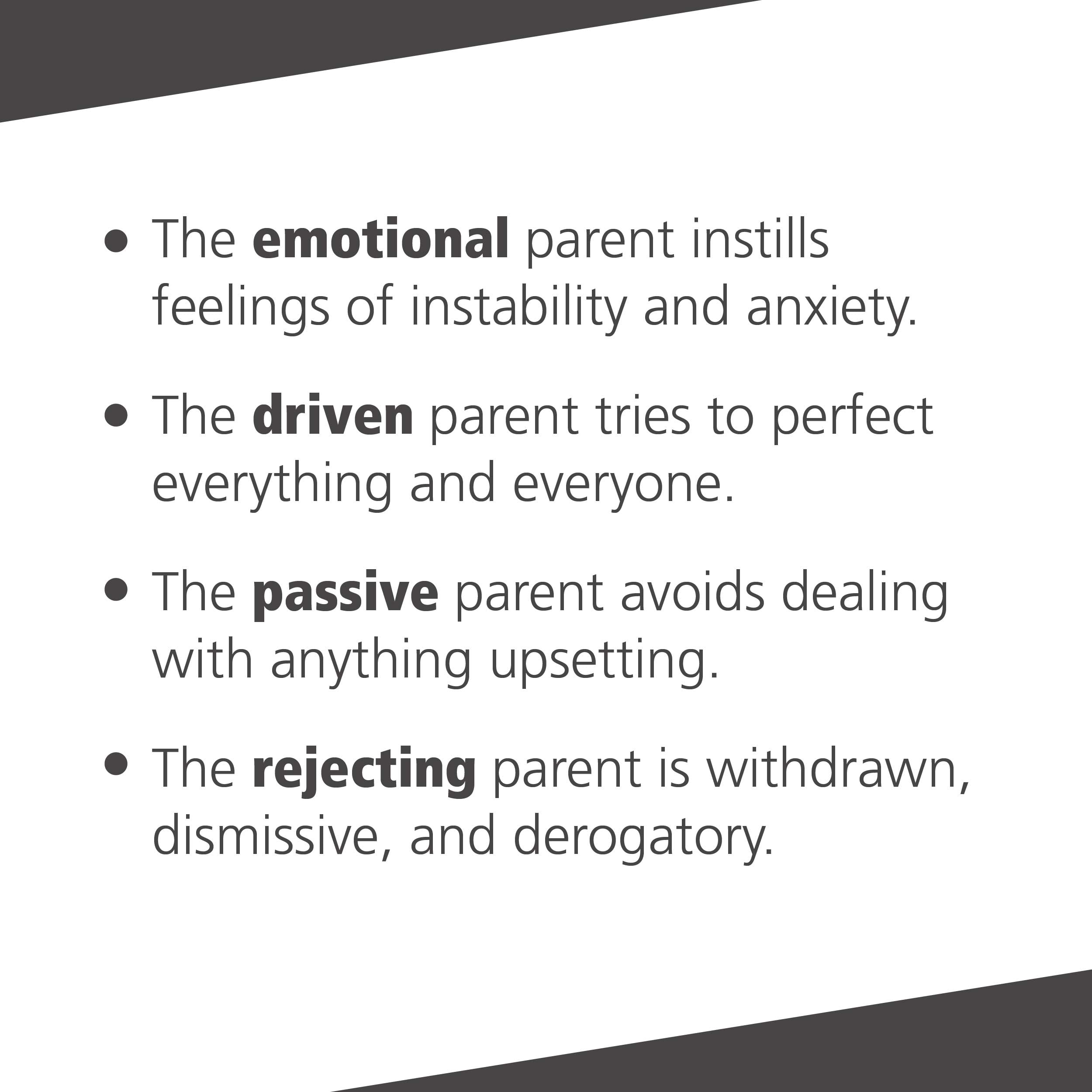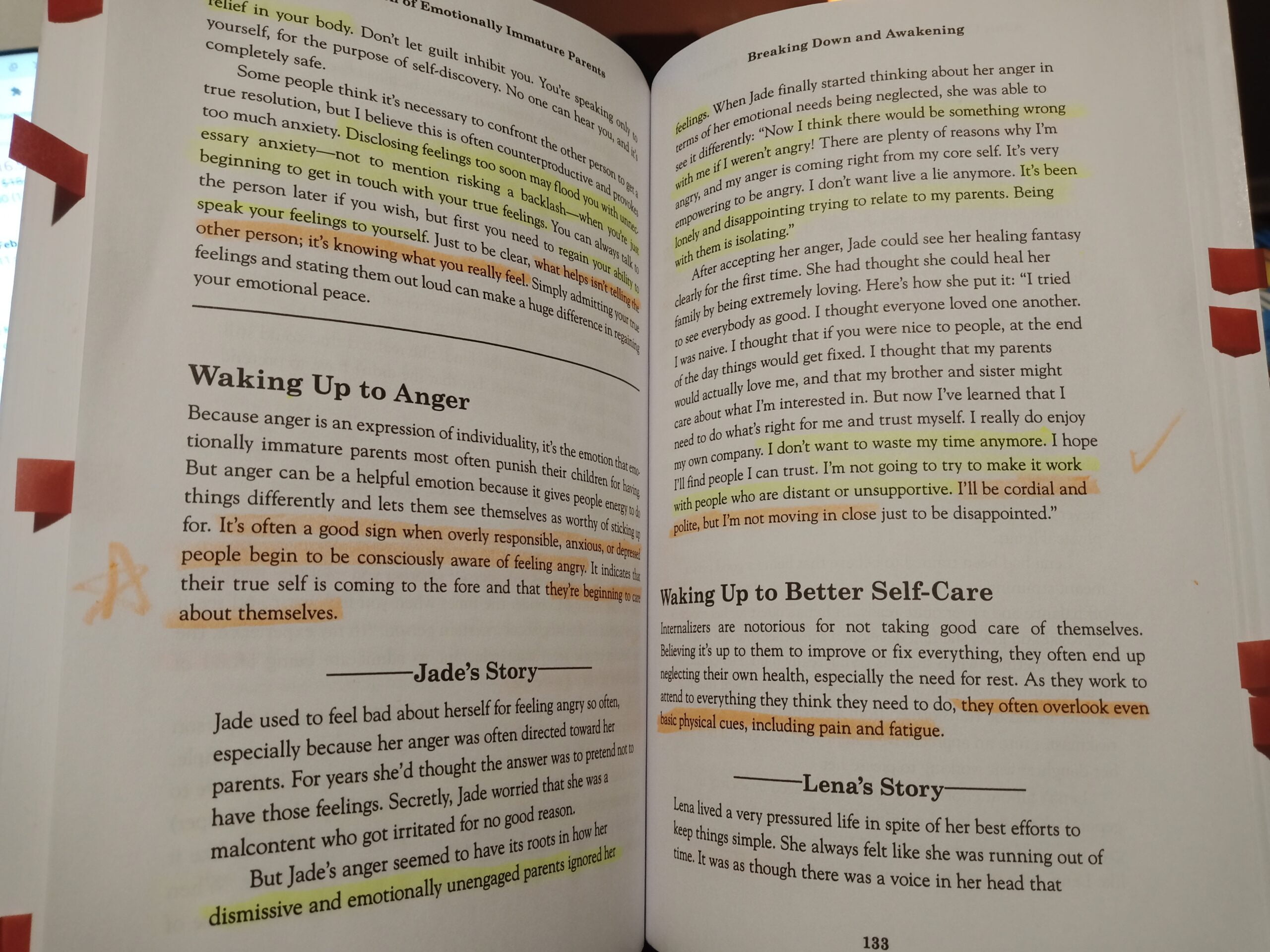
1. Having to talk a parent or guardian “down off the ledge,” in attempts to deescalate their personal (adult) situations, so I could avoid more psychological trauma.
2. Trying to open a respectful and calm dialogue to share my needs or feelings with a parent/guardian, only to be rejected, shot down, gaslit (“gas-lighted”?), ignored, or outright attacked.
3. Left to (try to) comfort or soothe myself and navigate difficult, confusing, and damaging situations on my own.
TLDR: If you can relate to anything even remotely similar to the above, you need to read Adult Children of Emotionally Immature Parents (ACEIP).
Granted, the challenges of my youth led to my becoming an independent, highly resourceful, supremely level-headed human who springs into effective, decisive action in times of intense crisis and life or death situations.
But what I didn’t realize was the wear and tear they had on my sense of self worth, my ability to set healthy boundaries, my inability to grow (personally and professionally) beyond a certain level… and so many other areas of my life.
If you’re wondering, ACEIP isn’t a blame session that goes “all in” on the parent or guardian and trashes them for what they did to us. Instead, it explains that having an emotionally immature (EI) parent is surprisingly common (no matter your ethnicity or background).
And it tells us how to cope (if they’re still around), and how to heal from that trauma, and thrive.
On the flip side, fortunately, ACEIP also doesn’t dismiss, excuse, or explain their behavior away. It just helps us understand the parents’ humanity a bit better, to see how the ways they treat(ed) us and others were/are simply their inbuilt survival mechanisms.
In fact, the Introduction states:
Emotionally immature parents fear genuine emotion and pull back from emotional closeness. They use coping mechanisms that resist reality rather than dealing with it. They don’t welcome self-reflection, so they rarely accept blame or apologize. Their immaturity makes them inconsistent and emotionally unreliable, and they’re blind to their children’s needs once their own agenda comes into play.
In this book, you’ll learn that when parents aren’t emotionally mature, their children’s emotional needs will almost always lose out to the parents’ own survival instincts.
One crucial thing I want to point out before we’re done with this review is…
If a parent had or has a substance dependency (alcohol, drugs, etc.) … they are virtually guaranteed to be EI.
Why?
Substance dependence happens when we’re specifically and pointedly determined to avoid dealing with our emotions. So again, if that’s also the case for one of your parents or guardians, I strongly suggest reading this book.
We all can be emotionally immature at times. It’s human nature.
But this book helps us recognize whether that was (or is) a PATTERN we lived underneath.
And whether it’s a pattern we were drowned out by during a time we were supposed to be developing healthy coping mechanisms, hormonal systems, nervous systems, etc.
That’s an important distinction.
ACEIP is an exceptional read for people who don’t know whether they have an emotionally immature parent. But also for those of us that do know and need to understand all the ways we’ve been affected… so we can stop blaming ourselves and wondering what’s wrong with us.
And so we can start (or continue!) the journey to growth, self-love, and emotional wellness.
This journey is even more important for those of us with our own children.
Because if we had an EI parent, we either were at some point — or still are — almost certainly EI ourselves.
That’s a very troubling thing to pass down to our children. Let’s break this pattern.
The Table of Contents:
- How EI Parents Affect Their Adult Children’s Lives
- Recognizing the EI Parent
- How it Feels to Have a Relationship with an EI Parent
- Four Types of EI Parents
- How Different Children React to EI Parenting
- What It’s Like to Be an Internalizer
- Breaking Down and Awakening
- How to Avoid Getting Hooked by an EI Parent
- How it Feels to Live Free of Roles and Fantasies
- How to Identify EI People
Another thing I find interesting:
So many self-identified “empaths” actually seem to be either “internalizers” OR overly sensitive to triggers, (i.e., the emotions of others).
Is it that our society has coined the phrase “empath” to hide our trauma in plain sight?
For our media, our “healthcare” system, etc., to admit that our normal ways of living are traumatizing us would mean they’d be held accountable to fix it. And I believe that’s just not something mainstream society and our governing organizations are ready to deal with, as a collective.
Anyway, that’s beyond the scope of this review.
As adults committed to living fulfilling, healthy, happy lives, we owe it to ourselves (and our children and families) to pull back the veil, to understand just what’s happening here, and to get a handle on it so we can turn it around. Adult Children of Emotionally Immature Parents helps us do that–with clarity, gentle persistence, and specific exercises and tools to help us go, and GROW… little by little… out of the dark and into the light.
100% recommended.
For more complete info on this topic, see the guide, “How to Heal from Childhood Trauma—without Reopening Old Wounds.“





Leave A Comment
You must be logged in to post a comment.